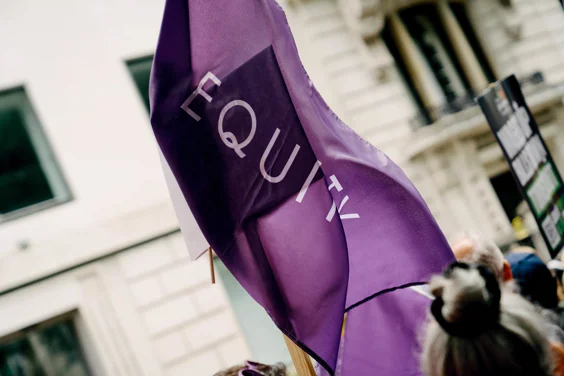On this page
What is bullying and harassment?
Your experience of working in the entertainment industry should be one that is safe, inclusive and free from bullying and harassment. But we know that, for many of our members, this isn’t always the case.
Bullying and harassment is behaviour that makes someone feel intimidated or offended. Harassment is unlawful under the Equality Act 2010.
Examples of bullying or harassing behaviour include:
- spreading malicious rumours
- unfair treatment
- picking on or regularly undermining someone
- denying someone’s training or promotion opportunities
Bullying and harassment can happen:
- face-to-face
- by letter
- by email
- by phone
Bullying itself is not against the law, but harassment is. This is when the unwanted behaviour is related to one of the protected characteristics.
If you are being bullied or harassed speak to us as we can help.
What is sexual harassment?
The Equality Act 2010 defines sexual harassment as “when someone makes you feel humiliated, offended or degraded because they treat you in a sexual way. This is known as 'unwanted conduct of a sexual nature' and covers verbal and physical treatment, like sexual comments or jokes, touching, or assault. It also covers sending emails of a sexual nature or putting up pornographic pictures.”
Sexual harassment
Where to get help if you're being sexually harassed
What you can do about bullying and harassment
No one should tolerate harassment or bullying behaviour while seeking work or when they are working. And no one should tolerate this when you witness or hear of it happening to others
- Safeguard yourself at all times. There will be occasions when you do not feel comfortable or able to challenge your mistreatment, or that of others.
- Contact Equity at the earliest opportunity. We treat your case confidentially, and will not take any action without your prior approval.
- You may be able to raise a workplace concern without revealing your identity. This is known as whistleblowing.
- Contact the police where your experience involves alleged criminal behaviour, for example assault or stalking.
- Keep a diary of all events, people etc. linked to an allegation of bullying or harassment.
- Keep copies, or take photos of, relevant forms and images, documents.
- Avoid using social, or other, media to challenge alleged harassment or bullying. This can prejudice any subsequent case Equity may pursue on your behalf.
If you’re being stalked
Being stalked is a distressing and in some cases life-changing situation. If you are being stalked or think someone is developing stalker behaviour around you, you should contact the police immediately and the National Stalking Helpline. If you feel you are in immediate danger call 999. If it is not an emergency, call 101 and explain what is happening to you. Contact the National Stalking Helpline for advice and to talk about personal safety planning. Tel: 0808 802 0300.
Being stalked? Sources of support
Stalking is a criminal offence wherever you live in the UK.


